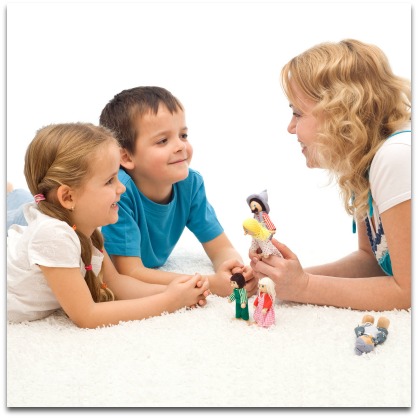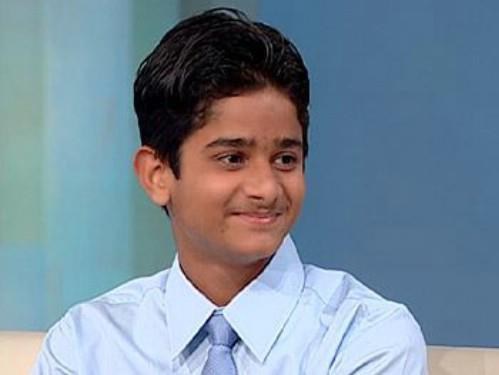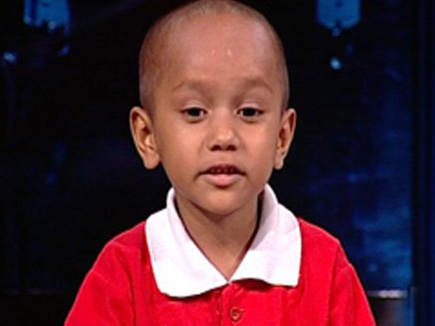-
Recent Posts
Recent Comments
Archives
- February 2020
- January 2020
- December 2019
- November 2019
- October 2019
- September 2019
- August 2019
- July 2019
- June 2019
- May 2019
- April 2019
- March 2019
- February 2019
- January 2019
- December 2018
- November 2018
- October 2018
- September 2018
- August 2018
- July 2018
- June 2018
- May 2018
- April 2018
- March 2018
- February 2018
- January 2018
- December 2017
- November 2017
- July 2017
- April 2017
- March 2017
- September 2015
- June 2015
- March 2015
- February 2015
- September 2014
- March 2014
- October 2013
- September 2013
- March 2013
- January 2013
- November 2012
- August 2012
- July 2012
- June 2012
Categories
Connect with me



Category Archives: school
Tips on Teaching Discipline to Kids Who Have Spitting Habit
Many of you might be facing this problem of your preschoolers, toddlers and 5-6 years old spitting around. This is not only embarrassing for the parents but disgusting or kids or elders they do to. This problem is a result of lot many factors. Let us discuss about the reasons and the tips on discipline kids with their spitting habits.
Why to kids Spit?
This is one curious question that parent of every kids that spits want to know. Again, the fact is that there is no one single reason behind a kid spitting. Some spit for fun as they feel it’s entertaining for them and they feel it’s the same for others around as well. Some toddlers want to garner attention in some way or the other and hence spit to get it. It could be attention or reaction, either way. Some kids use it as a self defense tactic. When they don’t want any other child to touch their stuff or use it, they spit in self defense. Kids who are older are known to spit to show their defiance about something. It’s a tactic they use to tell others not to control them. On a more serious instance, children with autism or special needs do spit as well. It is their method to gain control or express themselves across.
How to manage spitting issues of Children?
Be calm and composed – It’s obvious to get angry when you see your child spitting on others of even you. But, your child picks up what he sees in your behavior, so the more calm you stay the better. If it’s too much to take, simply walk away or out of the room. But, showing anger or cursing is not a good idea as the child can pick up the same habit.
Clear on unacceptability around Spitting – Make it crystal clear for the child that a habit or action like spitting is not acceptable at all. No need to give a lengthy lecture, you may keep it short but clear.
Ask the child to clean his spit – This idea could be quite helpful in reducing the habit because the child knows that if he or she spits, they’ll have to clean or wash it off. So, just to avoid that extra work they might have to do, it might just work.
Give your child a timeout – Timeouts do work on some and not on some others but if your child knows about time out then it would work in that case. Giving a time out helps children calm themselves down.
Rebate system – This system could help as well. For example if your kid spits on another kid ask your kid to lend their toy to that kid for a day.
Guide your child – You can help your child out with anger management and how to use words over spitting. Gradually your child will learn to manage his or her anger and calm self down.
Reward System – A reward system usually works. So, If you find that your this methodology could be used with your child. Keep a behavior chart for your child and keep it creative with stickers and stars and smileys a stuff. When your child abides by it, praise him or her and encourage. This can help the child get rid of the spitting habit.
You just know about Vydehi School of Excellence – CBSE School in Whitefield Bangalore
*Sourced from the Internet
Obesity Has Nothing To Do With Smartness in Kids – A Study
A Study carried out by a team of researchers at the University of Eastern Finland, had revealed that body fat or different levels of aerobic fitness had not effect on the cognitive abilities of a child. This study was carried out on 371 children in the age group of 6-8 years of age. The study further revealed that the boys with higher aerobic fitness levels faired poorer during the two year follow program on cognition as compared to their peers with lower fitness levels. The study also showed that boys having better motor skills were have a little increase in their cognitive skills as compared to those boys who had poor motor skills.
Obese kids are as smart as their peers in areas associated with Motor competence, fitness and adiposity as well as cognition. Eero Haapla, A post-doctoral researcher from the university said that the results didn’t necessarily exhibit the casual relation between cognition and motor skills.
The study was published in the journal medicine and science in sports and exercise cognition as well as motor skills are associated with each other in boys yet the study is not enough proof to claim that motor skills boosts cognition.
Still obesity needs to be taken care of by parents, particularly child obesity. Another study around obesity has claimed that lack of sleep could be one of the reasons for childhood obesity. As per a new study from university of Warwick, the children who sleep for less than the recommended hours for children tend to become obese in the later years of their life. The study is based on meta-analysis of 75000 children from the age of 0 -18 years of age. The children who are deprived of sleep on a regular basis are 58% more likely to be obese or overweight. Attention issues are also linked with obesity hence children with ADHD also are at risk because their mind cannot be shut down instantly or easily as its buzzing continuously. Hence, sleep education to parents needs to be done in order to create the awareness around it and many associated side effects of the same.
Vydehi School of Excellence is one of the Top CBSE Schools in Bangalore
*Sourced from the Internet
Tourette Syndrome – The Condition That Rani Mukherjee Suffers From in the Movie Hichki
Tourette syndrome is a rare syndrome in which the person suffering from the condition might do some uncontrolled movements that are repetitive in nature. This could include movements like blinking the eyes or shoulder shrugging or blurting out some unusual words or even offensive words in repetition. Many people in India aren’t even aware of this syndrome’s existence till now. But, awareness around it increased after the recent release of the Hindi Flick Hichki. This movie depicts the challenges and overall life’s journey of a lady who suffers from Tourette syndrome. While watching the movie you do get a fair idea about the condition. Well, let us look into the condition, its types, symptoms, and treatment here.
Tourette syndrome is known to show up during the ages of 2 to 15 years but the average is 6 years. Males are known to be at three to four times greater risk as compared to women. There’s no cure for Tourette syndrome as on day but you have treatment options depending upon the type and severity of the condition. Many who suffer from mild symptoms can easily do away with treatment. The symptoms reduce as you grow and can be controlled after teenage to an extent.
Causes
While the exact cause is yet to be known, it is generally known to be caused due to genetics and experts say that chemicals like serotonin, dopamine and likes of brain chemicals that are responsible for transmitting nerve impulses could be the risk factors, thus including family history beside gender factor.
Symptoms
The hallmark of Tourette’s syndrome are these intermittent or repetitive movements or tics. They can either be of mild type or of severe type. While the milder ones are easier to deal, the severe ones can hamper the quality of life to an extent and be difficult to manage as well.
There are two basic types of tics. They can either be motor tics (movement based) or vocal tics (sound based).
- Simple – In simple type only a limited number of muscle groups are involved. Simple tic movements include movements like head jerks, shoulder shrugs or eyes blinking or darting, nose twitching or movements of mouth. Vocal ones include clearing of throat, barking, coughing or grunting.
- Complex – The complex type involves the use of several muscle groups for their unique movements and coordinated patterns. Complex tics involve complicated recurring movements like following a certain pattern continuously, smelling and touching objects recurrently, bending, twisting, hopping or doing obscene gestures.
The transition of these tics keeps on varying with age and even with the state of mind. For example if you are stressed these can get worse and in adulthood they could reduce as well. They could occur in sleep too and the pattern might change over a period of time.
Well, if you find that your child is exhibiting some symptoms from the ones mentioned above in the early years, then seek the help of your pediatrician.
*Sourced From the Internet
Parent Child therapy to Help Children Fight Depression
Clinical depression is prevalent in India and even in kids as young as three. Childhood depression can take a toll on their adulthood as well. Even in India today there is less awareness around this subject and behavioral treatments are sparse, to say the least. Even parents face issues of lack of awareness about childhood depression. This study about Childhood depression published recently in The American Journal of Psychiatry says that there is 1% to 2% possibility of children going into depression at such a tender age. But, there is hope and Washington University School of Medicine in St Louis has carried out a new research which tells that interactive therapy that involves parents along with their depressed kid can help reduce the severity of the symptoms and even rates of depression.
The findings of the study have found place in this year’s June edition of the Journal. The therapy adapted by the team is known as Parent-child interaction therapy introduced in the 1970s for correcting the disruptive behavior in Children of preschool. The adaptation was made up of a series of sessions that primarily focused on emotions. Luby and team felt that depression was only an impairment around the ability to regulate and experience emotions. The program was spread across 18 weeks and was made up of 20 sessions. The program started using a truncated version of the traditional PCIT on around 229 parent-child pairs. The Children were in the age group of 3 – 7 years. Half of the children received the adapted therapy.
The study also found that the children who received earlier intervention as compared to those children who were wait-listed had a lower rate of depression after 18 weeks of therapy and even less impairment. They also found that even if depression persisted it was less severe as compared to kids who did not undergo therapy.
The study showed that even without targeting a depressed parent directly, the symptoms improve after treating the child’s depression and vice versa. As per Luby, the therapy could be used widely as it is short span therapy of only 18 weeks duration and it does not require a psychologist or psychiatrist. Even cost wise also it is an affordable treatment.
*Sourced From the Internet
5 Child Virtuoso’s That Make India Proud
While many of the kids are busy watching cartoons in the world, there are children who are busy discovering, inventing and innovating in various different fields like mathematics, science, sports, art, music and more. If you aren’t aware of kids who are making millions at the age of 7 or 8 by creating mind blowing paintings and most importantly that they are of Indian origin, then here’s an interesting piece of information around the little geniuses who find their roots in the land that was once known as the golden sparrow.
Akrit Jaswal
This child of Indian origin is one of a kind. He has already been a guest at ‘The Oprah Winfrey Show’. Why? Because at the age of 7, he was able to operate a girl one year elder to him for treatment of her burnt and fused fingers. Akrit was able to free those fingers with surgery. He is nothing less than a genius with an IQ of 146. At present, he is a teenager and is conducting research on finding a cure for the dreaded disease called Cancer.
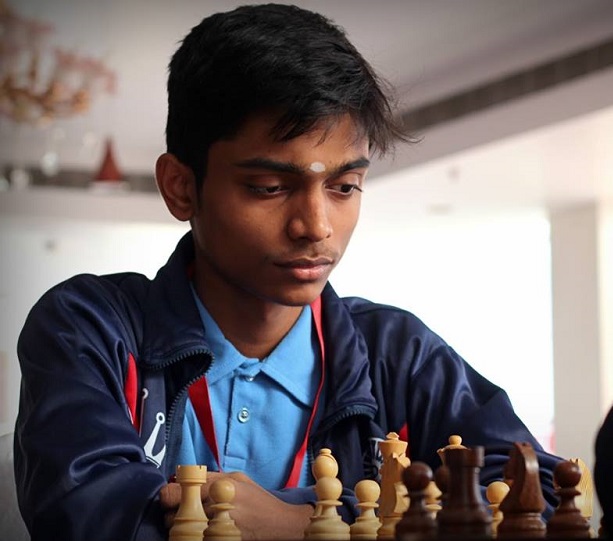 Aravindh Chithambaram
Aravindh Chithambaram
Overcoming the umpteen monetary challenges that came in his way, he became the chess grandmaster of 2015 at the tender age of 15. Known as the next Vishwanathan Anand of India, his score at the Aeroflot open this is 5/9 with a FIDE ranking of 2584.
Kautilya Pandit
He has an astounding IQ of over 150 and is already titled Google boy due to his extraordinary memory prowess. Kautilya is better than any other average adult on knowledge of topics like History, Geography, Culture, Heritage and more. No Wonder, he was invited at the hot seat of Kaun Banega Crore Pati besides receiving an award of 10 lacs from the Haryana Government. The Kashi Vidwan Parishan has also decorated him with the title of Bal Manishi.
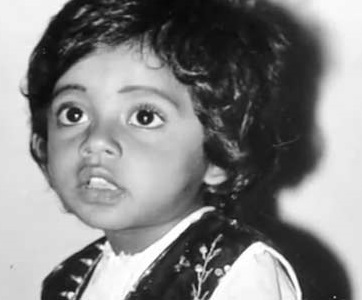 Edmund Thomas Clint
Edmund Thomas Clint
Though this star is in the skies now and privileged the country only for around 7 years, he has to his name over 25000 paintings. To achieve the quality of artwork he created it generally or rather normally takes years of analytical study and training. He won the under 18 painting competition at just 5 years of age. His work has been displayed in various exhibitions across Kerala from 1995 to 2007.
Priyanshi Somani
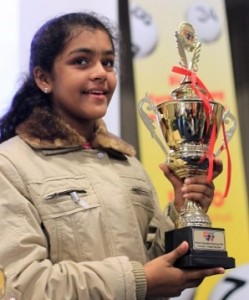 Priyanshi Somani won the mental calculation world cup in 2010 with 100% accuracy in mathematical calculations like addition, subtraction, multiplication, division and more. She has won so many awards since her world cup win that she has secured herself a place in the limca book of records as well as the Guinness Book of world records.
Priyanshi Somani won the mental calculation world cup in 2010 with 100% accuracy in mathematical calculations like addition, subtraction, multiplication, division and more. She has won so many awards since her world cup win that she has secured herself a place in the limca book of records as well as the Guinness Book of world records.
Just know about Top CBSE Schools in Bangalore
*Sourced from the Internet
How To Raise a Confident and Happy Girl Child – A Few Tips
Raising a child, be it a boy or a girl ain’t an easy at it may seem. Once you become a parent you automatically commit yourself to a 20 year long project to say the least. In India, people have now started having an open mind around gender equality and this paradigm shift is bringing about a progressive change in the society as well. Though depression and anxiety amongst children, are threats that are existent in the society even today. Particularly in India gender inequality is an issue deep-rooted in India’s DNA since the beginning of time. Though in urban India, the picture is different and people do believe in gender equality.
We in India even today are used to teaching our children, particularly girl child to do what we want them to do and not what they want to. We impose our choices and restrictions on them. As a result, the girls are not able to bloom to their fullest and learn to be independent in terms of taking decisions. Here are a few tips to help you make your girls turn into happy and confident individuals.
Freedom to be – let you girl decide what she wants to eat, wants to wear or what she wants to do. Do not impose your likings on her. This will help her develop decision making skills. That does not mean everything is permissible, but within limits give her the freedom to be herself.
Saying No is okay – Usually, we teach our girl to not say no if someone wants to hug or we want her to meet a person or say hello to a person who she does not like. But, the fact is it should be her decision. If she is uncomfortable about something like a bad touch, let her know that it is okay to say no and tell the person in question that she is not comfortable with what’s happening and take further step of letting an elder no if the situation is out of control. You need to make her understand that saying no is okay and her comfort and choice is important.
Sharing is Caring – Try to develop a friendship bond with your child and see that your girl child shares her issues with you. If your bonding with your girl is great, it will not only help her but you also in resolving the issues and concerns of her.
Don’t expect too much – Expecting above a child’s abilities is not a good idea. It restricts the full blooming of the child as you put a load of your dreams on her. Do understand that your child is also an individual with her own likes, dislikes, dreams and more. Let her be herself and carve out a life of her choice for her.
As the torchbearer though, you may guide your child through her journey and help make it a beautiful and content one.
Just know about Leading CBSE Schools in Whitefield Bangalore
*Sourced from the Inernet
How To Ensure Kids Safety During Diwali? – 20 Precautionary Tips
Diwali is the festival of lights and everyone including the children are very excited about Diwali. It is by far the most important festival of the year for all Indians irrespective of religion, caste or creed. Having said that Diwali also brings along with it the fear of burns, eye infections, breathing issues, skin allergies and more. Hence it is important that we take due care not only for our children but also for all of us including elders who too because children and the elderly are more prone to Diwali accidents due to fire crackers.
As per skin specialists Diwali is the festival when people into lighting fire crackers of various types and this makes our skin vulnerable to different chemicals that are using in making fire crackers. As they say prevention is the best cure, it’s always a good idea to take due care to avoid accidents due to fire crackers.
Here’s a few tips on keeping a checks so that you can avoid Diwali mishaps –
- Always buy crackers from a registered store only
- Store fire cracker away from inflammable areas
- Keep fire crackers away from the reach of children
- Light the crackers only in open areas
- Do not point crackers like rockets , etc. towards other residential places
- Keep a steel bucket or pot to dispose the lit fire crackers like sparklers so that no one
- mistakenly stamps on them. After use pour water on the lit crackers
- Do not light crackers near parking areas
- Always wear footwear when lighting fireworks
- Wear cotton clothes and avoid polyester or clothing of other material
- Keep first aid handy in case of a mishap
- Supervise your children when they light crackers and ensure they light crackers from arm’s length
- Always keep a lot of water ready for use in times of emergency
- Do not direct or light crackers on roads of crowded areas
- Avoid carrying crackers in pockets
- Do not keep liters or match boxes around crackers
- Avoid exploding crackers that create noise pollution
- Avoid doing any kind of stunts around lighting crackers
- Take care of clothing like stoles or duppattas as they are prone to catch fire easily, rather avoid.
- Do not right away go to check on crackers that did not burst on lighting. Also keep safe distance even while checking.
- Do follow the instructions printed on fire crackers and follow them
Let’s make Diwali a festivity of lights and happiness and shun away endangers that firecrackers bring along with precautionary measures in place.
Have a safe and eco-friendly Diwali.
Just know about leading Schools in Whitefield Bangalore
5 Tips on Teaching Consent to Your Pre-Schooler
India has patriarchy deep rooted within it culture and by far the main reason behind inequality to women and gender based violence. Apparently, consent culture has rarely prevailed in India and it’s high time that we bring it into practice. Well, no doubt, this needs to begin at home and we as parents need to inculcate it amongst our children, boys or girls. We need to understand is by creating a consent culture we are making a huge contribution towards not only making our children smart enough to understand the difference between the good and the bad but also making the world a safer and better place for one and all. When only we as a society start giving importance to the consent culture is when our boys and girls will start respecting each other.
We live in a society in India where consent is only a context of physical intimacy. Rather, the concept of consent is relevant and necessary in every little things that we encounter in our day to day lives, right from shaking hands, to hugging to even posting pictures of your own children on Facebook or even forcing them to eat the food they do not want to. Consents needs to be sedate, honest, willful, unforceful, continuous and enthusiastic.
MODELLING THE CONSENT CONCEPT
Consent culture is about valuing the feelings of other people while interacting with them, be it casually or professionally and as mentioned earlier it begins at home, that to in the early years. It also means that your child’s consent is equally important and needs to be taken into consideration like every other adults. For example forcing children to eat stuff they don’t wish to or to take them to places they don’t want to go also comes under the consent model. Your child’s inputs do matter as much as any other member as your child is also a member of the family and deserving the same attention, respect and its time that we start enforcing it even in the smallest of the decisions.
TALK ABOUT GOOD TOUCH, BAD TOUCH AND MORE
In India, sex talk has been a taboo since the very beginning of time, may be. Yes, times are changing and for good and umpteen parents are trying to break the ice around it when it comes to talking to their teen children. Due to the increasing number of cases of sexual violence around pre-schoolers, taking steps in making the preschoolers understand the difference between good and bad touches and more is extremely important. Primarily, they need know that they have a right to say yes or no, if and when someone unknown/ known touches them inappropriately or asks them to do something. For example, if a relative of yours asks your child to sit on his/her lap, your child has the right to politely decline it, if he/she aren’t willing to do so. Also kids need to be taught that others need to ask for their consent when touching them, hugging them, kissing them, borrowing something from them or asking them to do something. They also need to be taught what an in appropriate touch means and how to deal with something like that. We need to teach them to say no to what is inappropriate straight away. They also need to be taught to take steps to report about the same to their family member or school authority. The most important part that we all need to learn and teach is that when someone says no to something, it means a no clearly, even if he or she is smiling when saying it.
Just know about Leading Pre-School in Whitefield Bangalore
A Few Tips to Consider for Working Parents
Parenting is never a cake walk for anyone and once you become a parent is a 20 year project if not less. Also, the early years, 0 to 5 are the major and most significant years for a child. We are living in the times when mostly both the parents work and spending quality time with the child is a problem that every other working parent faces. Dr. Richa Ahuja, a clinical psychologist at the Max super speciality hospital says that she has observed that most of the parents are not able to spend quality or quantity time with their kids. The reason is that most of them work for long hours. Once back they are so tired, stressed and drained out that, managing the kids or their tantrums. They want to be at peace and hence are either hooked to their gadgets or television, either as a family together or alone. The idea is to keep peace at home and relax. Sometimes kids are also soft targets for parents. Parents tend to vent out their anger at office on kids at home. Many a times children wants their parent to play with them or spend time with them, but due to the stress of work caused throughout the day parents aren’t able to do so.
Watching too much of TV or exposure to electronic gadgets does affect the child’s developmental behaviour in a negative way. Many parents do understand that knowingly or unknowingly they are the ones responsible for too much exposure to gadgets to their children. Many feel guilty for not able to spend time with the child and even end up buying expensive gifts for their kids.
Here are a few tips for working parents on managing your child and work responsibility together.
Communication is the Key – Communication can work very well for you and your partner when it comes to managing your child. For example rather than playing the blame game, a good idea is to take turns to do things. For example if it’s about dropping the child to school, attending PTM, to name a few. This way one of the partners does not feel loaded, particularly when both parents are working.
No Work at home please – Most of us tend to work at home also besides working at office. Avoid making this a habit. Understand that you already are compromising on your child’s well deserved time when you both are working. The idea is to make optimum use of your available time at home. Listen to your child, when the child is talking to you. You may not be aware but not listening to your child could result in low confidence or self-esteem of your child.
Spend time with family – Try spending quality time with your child as a family. Indulge in playing games, doing activities, going for a walk or hike with your family. This helps strengthen up the bond as a family. Particularly on weekends try to engage with your child and rather than showering them with gifts try to teach them to make efforts to earn them.
Have Dinner together – Let dinner time be family time every single day. Cut of yourselves from gadgets and television while on the dinner table and eat together. It’s very aptly said that the family that dines together stays together.
Above all, parents need to understand that it’s not presents that a child seeks from parents, its presence more so. Hence, workout between the both of you as parents how to share your responsibility and make the most out of the time available on hand, for your betterment of your child.
*Sourced from the Internet
Is Addiction to Gaming a Mental Health issue? Yes, Says WHO
The World health organisation in its revised manual of International Classification of Diseases (ICD), classified Gaming as a mental health disorder. As per WHO, it is a “pattern of persistent or recurrent gaming behaviour” that can aggravate to an extent that it takes precedence over other life interests”.
The objective of the classification is to alert health professionals as well as systems about its existence and that the people suffering from this condition need help of mental health specialists. This statement does comply by the fears that umpteen parents have with respect to their kids involvement in gaming. But, on the flip side, Dr Harvey, spokeswoman for British Psychological Society also issued a warning about stigmatising video gamers and unnecessary worry to parents. There is every possibility that medics are flooded with parents citing help hence it’s important for parents to know that not every child who plays video games is an addict.
Many others have welcomed this new classification stating the importance of identifying the people who are hooked to games quickly as mostly they are kids, teenagers more so. Even though they need help, these teens do not seek help themselves. Another researcher working on researching on video gaming disorder for the past three decades welcomed the classification stating that it would help in regulation the condition and developing treatment strategies.
As per Britain’s Royal College of Psychiatrists spokesperson for behavioural addictions the have many cases of distressed parents due to their child dropping out from school and more so the family structure crumbling down. She also said that psychological therapies and a few medications could work well towards treatment of this disorder.
Even Psychiatrists in India cite digital detox as a treatment procedure to cure this disorder. The director of Mental health and behavioural sciences at Max Healthcare said that screen time addictions leads to lack of interaction between parents and children and thus low emotional connection. This further leads to aloofness and isolation in adolescents.
The characteristics of gaming disorder include eating problems, avoidance or neglect of physical activities as well as disturbed sleep patterns.
An active child shows interest in everything. They display happiness and feel good. They perform well academically too. Physical activities are a must for children to make them active all throughout the day. At least an hour of physical activities per day is a must. Read More

